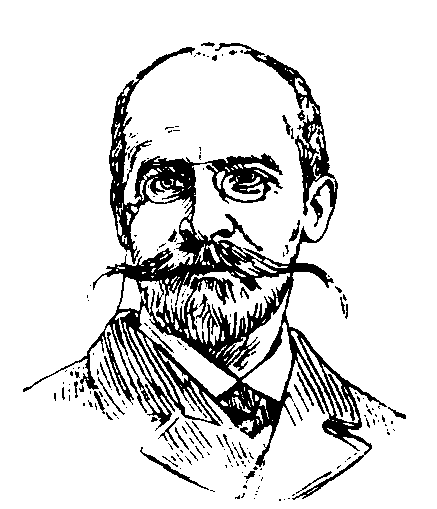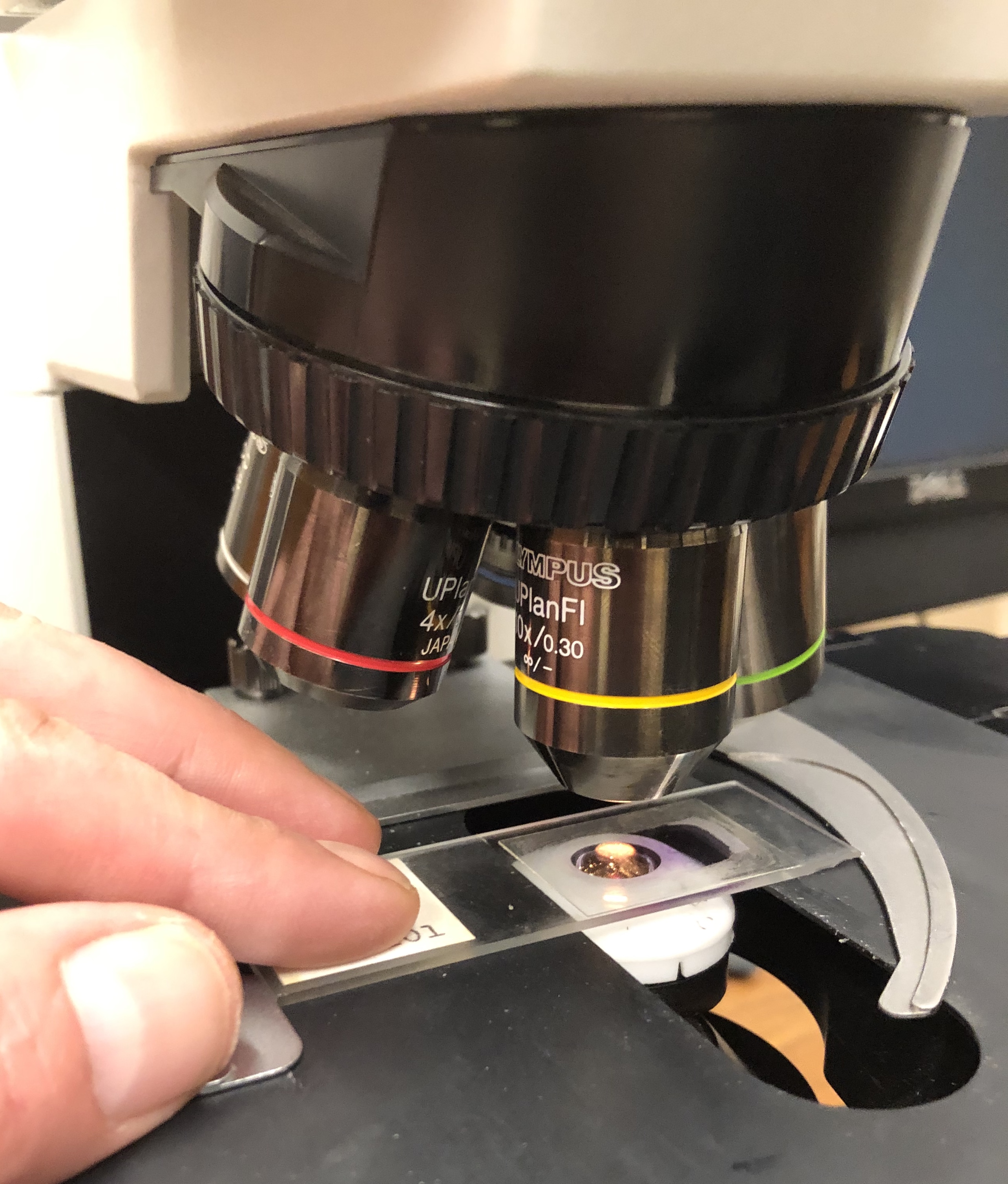|
Vladimir Betz
Volodymyr Oleksiyovych Betz( ua, Володи́мир Олексійович Бец) ( – )Kushchayev, Sergiy V., et al. "The Discovery of the Pyramidal Neurons: Volodymyr Betz and a New Era of Neuroscience." JOURNAL OF NEUROSURGERY. Vol. 113. No. 2. 5550 MEADOWBROOK DRIVE, ROLLING MEADOWS, IL 60008 USA: AMER ASSOC NEUROLOGICAL SURGEONS, 2010. was a Ukrainian anatomist and histologist, professor of the Saint Vladimir University (Kyiv, now Ukraine), famous for the discovery of giant pyramidal neurons of primary motor cortex. Volodymyr Betz began his education in the Nizhyn Gymnasium (the Russian Empire at that time). Later he transferred to the 2nd Kyiv Gymnasium and graduated from it in 1853. In 1860 he received a physician's diploma from the Medicine faculty (now Bogomolets National Medical University) of Saint Vladimir University in Kyiv (now Taras Shevchenko National University of Kyiv) and was appointed a prosector's aide at the anatomy department. He went abroad to st ... [...More Info...] [...Related Items...] OR: [Wikipedia] [Google] [Baidu] |
Prosector
A prosector is a person with the special task of preparing a dissection for demonstration, usually in medical schools or hospitals. Many important anatomists began their careers as prosectors working for lecturers and demonstrators in anatomy and pathology. The act of prosecting differs from that of dissecting. A prosection is a professionally prepared dissection prepared by a prosector – a person who is well versed in anatomy and who therefore prepares a specimen so that others may study and learn anatomy from it. A dissection is prepared by a student who is dissecting the specimen for the purpose of learning more about the anatomical structures pertaining to that specimen. The term dissection may also be used to describe the act of cutting. Therefore, a prosector dissects to prepare a prosection. Prosecting is intricate work where numerous tools are used to produce a desired specimen. Scalpels and scissors allow for sharp dissection where tissue is cut, e.g. the biceps brachii ... [...More Info...] [...Related Items...] OR: [Wikipedia] [Google] [Baidu] |
Medical Educators
Medicine is the science and practice of caring for a patient, managing the diagnosis, prognosis, prevention, treatment, palliation of their injury or disease, and promoting their health. Medicine encompasses a variety of health care practices evolved to maintain and restore health by the prevention and treatment of illness. Contemporary medicine applies biomedical sciences, biomedical research, genetics, and medical technology to diagnose, treat, and prevent injury and disease, typically through pharmaceuticals or surgery, but also through therapies as diverse as psychotherapy, external splints and traction, medical devices, biologics, and ionizing radiation, amongst others. Medicine has been practiced since prehistoric times, and for most of this time it was an art (an area of skill and knowledge), frequently having connections to the religious and philosophical beliefs of local culture. For example, a medicine man would apply herbs and say prayers for healing, ... [...More Info...] [...Related Items...] OR: [Wikipedia] [Google] [Baidu] |
Inventors From The Russian Empire
This is a list of inventors from the Russian Federation, Soviet Union, Russian Empire, Tsardom of Russia and Grand Duchy of Moscow, including both ethnic Russians and people of other ethnicities. This list also includes those who were born in Russia or its predecessor states but later emigrated, and those who were born elsewhere but immigrated to the country or worked there for a considerable time, (producing inventions on Russian soil). For Russian inventions in chronological order, see the Timeline of Russian inventions and technology records. Alphabetical list A B C D E F G H I J K L M N O P R S T U V W Y Z See also * List of Russian scientists * Russian culture * Timeline of Russian inventions and technology records References {{DEFAULTSORT:Russian Inventors * Inventors Lists of inventors Inventors An invention is a unique or novel device, method, composition, idea or process. An invention may be an improvement ... [...More Info...] [...Related Items...] OR: [Wikipedia] [Google] [Baidu] |
Medical Writers
Medicine is the science and practice of caring for a patient, managing the diagnosis, prognosis, prevention, treatment, palliation of their injury or disease, and promoting their health. Medicine encompasses a variety of health care practices evolved to maintain and restore health by the prevention and treatment of illness. Contemporary medicine applies biomedical sciences, biomedical research, genetics, and medical technology to diagnose, treat, and prevent injury and disease, typically through pharmaceuticals or surgery, but also through therapies as diverse as psychotherapy, external splints and traction, medical devices, biologics, and ionizing radiation, amongst others. Medicine has been practiced since prehistoric times, and for most of this time it was an art (an area of skill and knowledge), frequently having connections to the religious and philosophical beliefs of local culture. For example, a medicine man would apply herbs and say prayers for healing, or an ... [...More Info...] [...Related Items...] OR: [Wikipedia] [Google] [Baidu] |
Academics From The Russian Empire
An academy ( Attic Greek: Ἀκαδήμεια; Koine Greek Ἀκαδημία) is an institution of secondary or tertiary higher learning (and generally also research or honorary membership). The name traces back to Plato's school of philosophy, founded approximately 385 BC at Akademia, a sanctuary of Athena, the goddess of wisdom and skill, north of Athens, Greece. Etymology The word comes from the ''Academy'' in ancient Greece, which derives from the Athenian hero, ''Akademos''. Outside the city walls of Athens, the gymnasium was made famous by Plato as a center of learning. The sacred space, dedicated to the goddess of wisdom, Athena, had formerly been an olive grove, hence the expression "the groves of Academe". In these gardens, the philosopher Plato conversed with followers. Plato developed his sessions into a method of teaching philosophy and in 387 BC, established what is known today as the Old Academy. By extension, ''academia'' has come to mean the accumulation, d ... [...More Info...] [...Related Items...] OR: [Wikipedia] [Google] [Baidu] |
Russian Neuroscientists
Russian(s) refers to anything related to Russia, including: *Russians (, ''russkiye''), an ethnic group of the East Slavic peoples, primarily living in Russia and neighboring countries * Rossiyane (), Russian language term for all citizens and people of Russia, regardless of ethnicity *Russophone, Russian-speaking person (, ''russkogovoryashchy'', ''russkoyazychny'') * Russian language, the most widely spoken of the Slavic languages * Russian alphabet * Russian cuisine * Russian culture * Russian studies Russian may also refer to: * Russian dressing *''The Russians'', a book by Hedrick Smith * Russian (comics), fictional Marvel Comics supervillain from ''The Punisher'' series * Russian (solitaire), a card game * "Russians" (song), from the album ''The Dream of the Blue Turtles'' by Sting *"Russian", from the album '' Tubular Bells 2003'' by Mike Oldfield *"Russian", from the album '' '' by Caravan Palace * Nik Russian, the perpetrator of a con committed in 2002 *The South African ... [...More Info...] [...Related Items...] OR: [Wikipedia] [Google] [Baidu] |
Histologists
Histology, also known as microscopic anatomy or microanatomy, is the branch of biology which studies the microscopic anatomy of biological tissues. Histology is the microscopic counterpart to gross anatomy, which looks at larger structures visible without a microscope. Although one may divide microscopic anatomy into ''organology'', the study of organs, ''histology'', the study of tissues, and ''cytology'', the study of cells, modern usage places all of these topics under the field of histology. In medicine, histopathology is the branch of histology that includes the microscopic identification and study of diseased tissue. In the field of paleontology, the term paleohistology refers to the histology of fossil organisms. Biological tissues Animal tissue classification There are four basic types of animal tissues: muscle tissue, nervous tissue, connective tissue, and epithelial tissue. All animal tissues are considered to be subtypes of these four principal tissue types (for ... [...More Info...] [...Related Items...] OR: [Wikipedia] [Google] [Baidu] |
People From Oster
A person ( : people) is a being that has certain capacities or attributes such as reason, morality, consciousness or self-consciousness, and being a part of a culturally established form of social relations such as kinship, ownership of property, or legal responsibility. The defining features of personhood and, consequently, what makes a person count as a person, differ widely among cultures and contexts. In addition to the question of personhood, of what makes a being count as a person to begin with, there are further questions about personal identity and self: both about what makes any particular person that particular person instead of another, and about what makes a person at one time the same person as they were or will be at another time despite any intervening changes. The plural form "people" is often used to refer to an entire nation or ethnic group (as in "a people"), and this was the original meaning of the word; it subsequently acquired its use as a plural form of p ... [...More Info...] [...Related Items...] OR: [Wikipedia] [Google] [Baidu] |
1894 Deaths
Events January–March * January 4 – A military alliance is established between the French Third Republic and the Russian Empire. * January 7 – William Kennedy Dickson receives a patent for motion picture film in the United States. * January 9 – New England Telephone and Telegraph installs the first battery-operated telephone switchboard, in Lexington, Massachusetts. * February 12 ** French anarchist Émile Henry sets off a bomb in a Paris café, killing one person and wounding twenty. ** The barque ''Elisabeth Rickmers'' of Bremerhaven is wrecked at Haurvig, Denmark, but all crew and passengers are saved. * February 15 ** In Korea, peasant unrest erupts in the Donghak Peasant Revolution, a massive revolt of followers of the Donghak movement. Both China and Japan send military forces, claiming to come to the ruling Joseon dynasty government's aid. ** At 04:51 GMT, French anarchist Martial Bourdin dies of an accidental detonation of his ow ... [...More Info...] [...Related Items...] OR: [Wikipedia] [Google] [Baidu] |
1834 Births
Events January–March * January – The Wilmington and Raleigh Railroad is chartered in Wilmington, North Carolina. * January 1 – Zollverein (Germany): Customs charges are abolished at borders within its member states. * January 3 – The government of Mexico imprisons Stephen F. Austin in Mexico City. * February 13 – Robert Owen organizes the Grand National Consolidated Trades Union in the United Kingdom. * March 6 – York, Upper Canada, is incorporated as Toronto. * March 11 – The United States Survey of the Coast is transferred to the Department of the Navy. * March 14 – John Herschel discovers the open cluster of stars now known as NGC 3603, observing from the Cape of Good Hope. * March 28 – Andrew Jackson is censured by the United States Congress (expunged in 1837). April–June * April 10 – The LaLaurie mansion in New Orleans burns, and Madame Marie Delphine LaLaurie flees to France. * April 14 – The Whig Party is official ... [...More Info...] [...Related Items...] OR: [Wikipedia] [Google] [Baidu] |






_1938.jpg)
